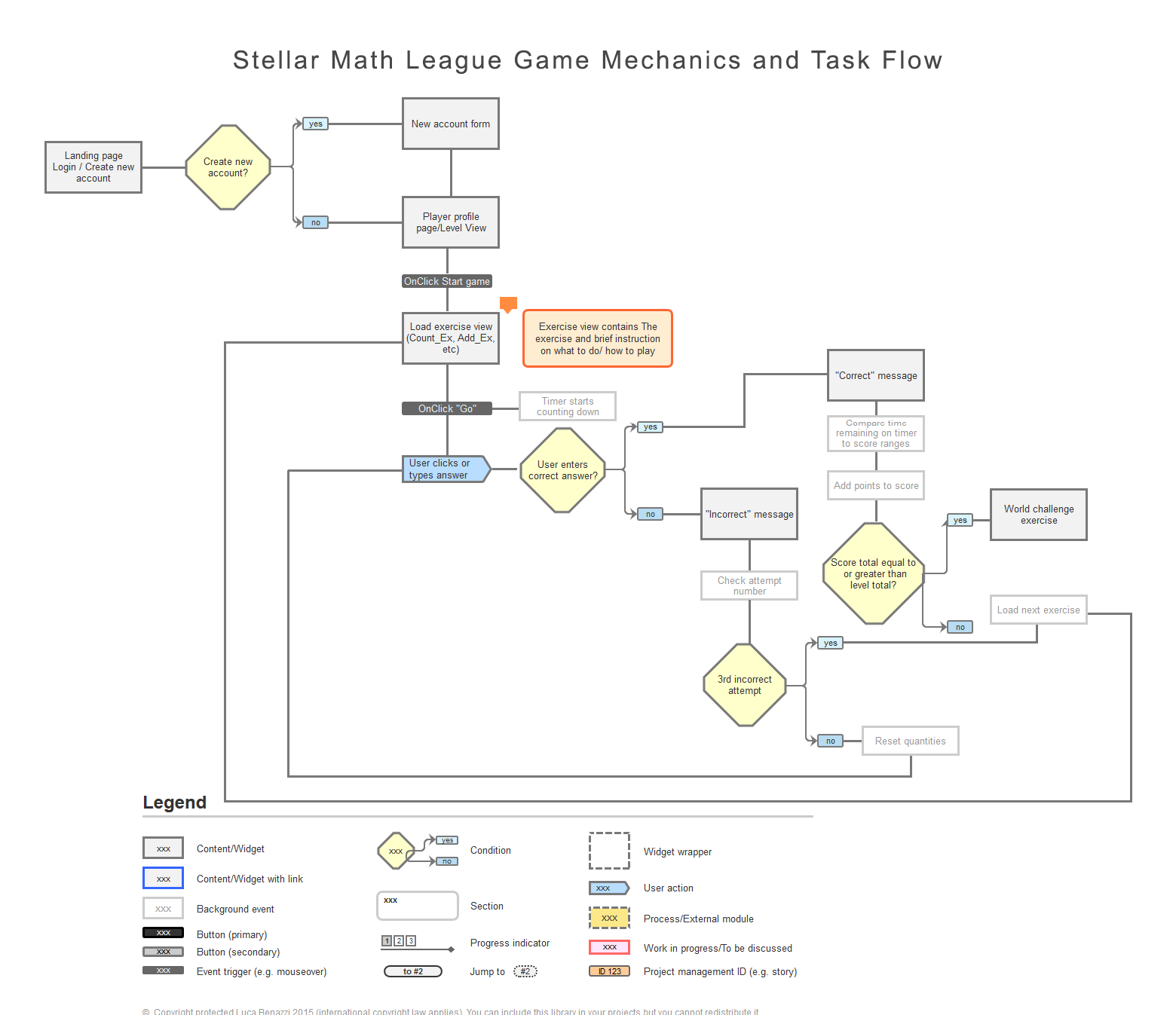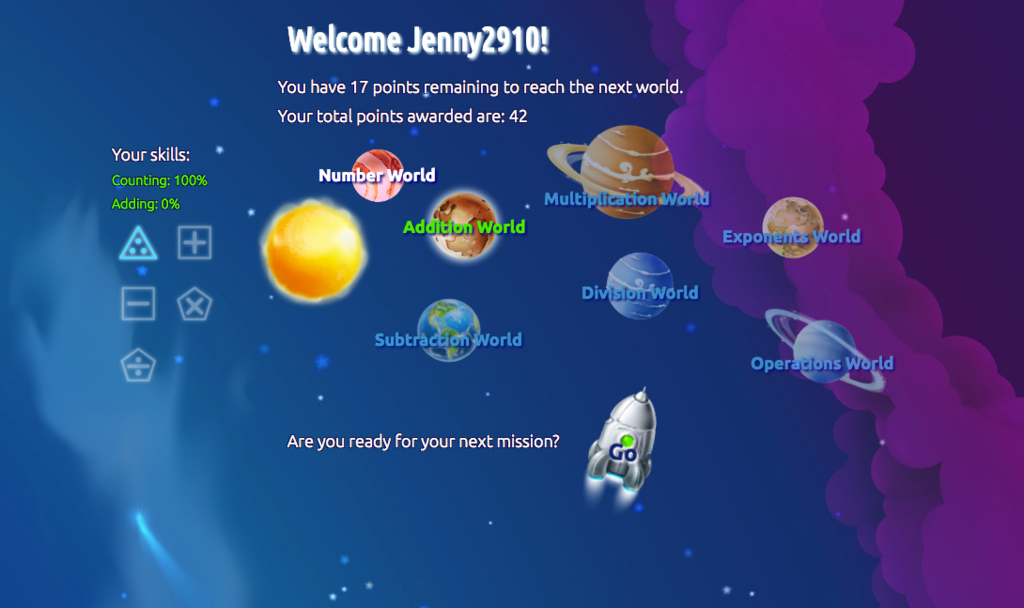OVERVIEW
Stellar Mathematics league is a series of games and exercises that is designed to teach first perceptual and then conceptual mathematics skills using scaffolding techniques of subitizing, visualization, auditory aids and gamification strategies.
The goal of the initial design is to help new and struggling students to build and improve math skills.


OVERVIEW
STELLAR MATH LEAGUE: Mathematics games and education integrated into a seamless experience
The challenge: Create an engaging educational experience directed by the student, that challenges and takes feedback from the student to create an effective scaffolding strategy that keeps the student within the zone of proximal development, building confidence and comprehension in tandem.
RESEARCH GOALS
Determine the most common causes of struggle and feelings of apprehension felt by k-5 students regarding solving math equations.
Determine effective solutions to improve comprehension, enjoyment and empowerment through the development and use of mathematics skills.
USER RESEARCH AND ANALYSIS
Initial research was conducted to understand the most common themes of this challenge.
These include:
-Students have difficulty with conceptualizing equations and numbers.
-While metrics measure both time and accuracy of a solution, the creation of a timed environment creates distraction and pressure that increase the difficulty of learning and contributes to a negative attitude toward the overall subject of mathematics.
-Abstract concepts of numeracy and solving equations may lack meaning and relevance to a student, contributing to the challenge of knowledge retention.
-Visualization can improve numerical concepts.
-Use of educational scaffolding to keep students withing a range called the Zone of Proximal Development, where learners are challenged enough to prevent boredom, while not so challenging that students give up is critical to the learning experience and to effective game design.
The next step was to create a script guided by these concerns to both validate them and provide insights from our target demographics about how to overcome them.
SCRIPT SAMPLE
The script was written with questions that were evaluated to determine their effectiveness in obtaining answers about the emotional, environmental and cognitive challenges faced by students. Feedback from this interview would be analyzed to create surveys and further interviews with students and parents.
KEY NOTES FROM TEACHER INTERVIEW
-Students respond better to activities outside of textbook work.
-Negative influence from family and even teachers who have struggled with math can create an inter-generational barrier of negative perception for children.
-Incorporating mathematics into other subjects of interest create relevance for the student.
-Activities that use rhythm and repetition help students retain knowledge.
-Very little time is spent on developing math vocabulary, making translation of a math problem description into a solvable equation more challenging.